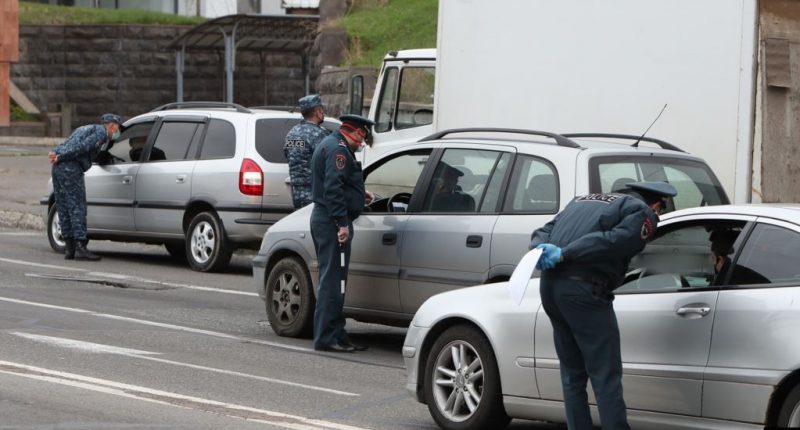YEREVBAN — Authorities suspended public transport in Yerevan and set up roadblocks across Armenia on Wednesday as they stepped up their efforts to slow the spread of coronavirus.
An Armenian government task force coordinating those efforts announced the new travel restrictions after extending on Tuesday existing curbs on people’s movement and the closure of most businesses in the country by at least ten days.
The Armenian Ministry of Health said on Wednesday morning that the number of registered coronavirus cases rose by 39 to 571 in the past 24 hours. The ministry had reported slightly faster rises in COVID-19 infections in previous days.
An 89-year-old patient diagnosed with coronavirus died at Nork Infectious Clinical Hospital, becoming 4th virus victim in Armenia.
The patient had pneumonia, as well as chronic diseases such as arterial hypertension, diabetes.
Health Minister Arsen Torosyan expressed concern over these infection rates late on Tuesday. He said that if they do not fall in the comings days Armenia will have as many as 2,000 coronavirus cases by April 14. This would overwhelm the national healthcare system increasingly struggling to contain the epidemic, he said.
“If this pace persists and [the coronavirus curve] does not become flat like in South Korea we will be forced to treat [COVID-19] patients with mild or no symptoms at home,” warned Torosyan.
Deputy Prime Minister Tigran Avinyan, who heads the coronavirus task force, said for his part that by toughening the nationwide lockdown the government hopes to cause the epidemic to recede in the second of April.
In line with the new restrictions, all subway and bus services in Yerevan were suspended on Thursday morning. Only taxis will be allowed to transport people until April 12.
People also can move around in their or their family members’ or co-workers’ cars. But they must prove, including with documents signed by their employers, that they left their homes for work or other urgent needs.
Early in the afternoon, police and other security agencies set up checkpoints on highway sections just outside Yerevan and other Armenian cities and towns. They checked every vehicle leaving or entering those communities.
Bus services between the Armenian capital and the rest of the country were already halted last week.
Many of the remaining commuters in Yerevan were not happy with the temporary ban on public transport. They argued that they have to go to work and cannot afford taxis on a daily basis.
“I work in a hospital and also provide home care to a sick person,” said Liana Babayan, a healthcare worker. “Working people should be able to use public transport. Let them just show their documents or have their temperature checked.”
“I now have to go to work on foot,” complained another resident. “My workplace is far away from my home.”










